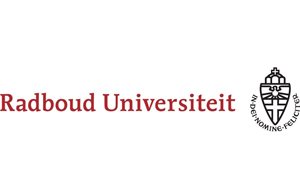Orientate
What can I do?
Going abroad
Check out the possibilities for studying abroad.
Bachelor Internship
You can go abroad in the second semester of your third year of your bachelor's degree. read moreBachelor Internship
In the second semester of your third year (mid March to early July) you can go abroad for your Bachelor's internship or Faculty Honors program. The size of this is 22 EC or 16 weeks. You can register via the Webdossier.You can search for an internship yourself and find internship counselors in your desired country and Nijmegen. It is also necessary to make an internshipplan and have it approve by the Examination Board. You also need a short preparatory workperiod in a lab or institute in Nijmegen.
Guide internships Bachelor
More information about bachelor internships for Biomedical Sciences. look at the pdfMaster Study
In your master you can follow your electives abroad. read moreMaster Study
In your master you have free space to choose courses (electives). You can follow these abroad. In this case you should include it in your individual study plan and get it approved by your mentor and then the Examination Board. Please note the number of credits per subject (minimum 2.5 EC) and that the content and form of assessment is clear.Master Internship
In your master there are two internships you can do abroad. read moreMaster Internship
If you want to do an internship abroad during your master you have two options:
- Profile internship
- General research internship
- Additional internship
Please have a look at the Guide for research internships for detailed information. Here you can find tips on how to find an internship location as well as supervisors at Radboudumc and abroad.
Moreover, the guide provides information on submitting your internship plan in OSIRISCase and the need for an internship agreement.
Guide internships Master
More information about Master research internships for Biomedical Sciences. look at the pdfWhere can I go?

Where can I go?
You can search for an internship abroad. Please note that there is sufficient scientific expertise at your intended internship.Examples of internship locations
- Griffith University, Queensland, Australië
- University of Britisch Colombia, Canada
- WHO Kopenhagen, Denenmarken
- University of Padjadjaran, Indonesië
- University of Rome, Italië
- Aicho Cancer Center Research Institute, Japan
- Institut Municipal d'Investigacio Medica, Spanje
- Liverpool School of Tropical Medicine
- Mount Desert Island Biological Laboratory, USA
- German Cancer Research Centre
- Karolinska Institutet, Sweden
- University Hospital Basel, Zwitserland
Planning
What should I do?
Preparations
- Collect information about what you want to do and where you want to go
- Check credits and recognition for foreign credits
- Prepare for another language
- Arrange a visa or residence permit

Money
- Available scholarships or funds?
- Check currency, bank cards and credit cards
Housing
- Arrange housing abroad
- Rent a room abroad

Health
- If necessary, arranging vaccinations
- Provide an English medical certificate for medicines
- If necessary, a medical screening
- MRSA screening upon return (if you have been in a hospital)
- Possible TBC screening upon return
Insurance
- Medical liability insurance
- Health insurance
- Travel insurance
- Personal liability insurance
- Occupational disability insurance or accident insurance
- If necessary, cancelation insurance
- If necessary, luggage insurance

Travel
- Book a ticket
- Valid passport or ID card
- International driving license
- Student discounts (ISIC studentenkaart)
To do
Do I have a financial plan?
Funding
Here you will find the possibilities for funding of your study abroad.
Radboudumc studentbudget
The Radboudumc studentenbudget is a subsidy from the faculty. There is no distinction between research (internships), education or clinical internships. read moreRadboudumc studentbudget
The faculty contribution is a lump-sum grant, which students can apply for several times up to a maximum of € 600. There is no distinction between research (internships), education or clinical internships.Note: Radboudumc Student Budget does not pay if you are entitled to an Erasmus grant!
You can request a grant via StIP. The forms are available at the StIP frontdesk and online.
Amounts
• For European destinations: € 150 a month• For non- European destinations: € 200 a month
Compensation for vaccination and a language course (if mandatory) can be declared.

Radboud University Scholarships
Radboud University grants funding for study, internship, research or congresses. read moreRadboud University Scholarships
Radboud University grants subsidies for study, internship, research or conferences. The target audience and the requirements for each scholarship can be found on the website of the central international office of Radboud University.To apply for an Individual Travel Grant you must submit a letter of support from the faculty. This is available via the StIP desk as of the moment that approval of this part of your studies is visible in your Webdossier. For conferences you need to appy for a separate letter of syupport via internationalofficestudent@radboudumc.nl.
Note: An Individual Travel Grant can not be applied to in combination with an Erasmus+ grant!

Erasmus+ grant
Erasmus + scholarships are suitable for almost all destinations within the EU. If you go abroad for an internship, you don't need to be linked to an university. read moreErasmus+ grant
Erasmus + scholarships are suitable for almost all destinations within the EU. Exceptions are Switzerland and the UK. Switzerland has its own scholarship, the Swiss-European Mobility Programme (SEMP). And after May 2023 the Erasmus+ programme is no longer applicable to the UK due to Brexit.
If you go abroad for an internship, you don't need to be linked to an university. There is a minimum period of 90 days for study and 60 days for an internship. The maximum period is 12 months. You may use Erasmus multiple times during your BSc, MSc and PhD, up to a maximum of 12 months. If you have not applied for a scholarship yet or have months left, you can also use them in the year immediately after graduating your BSc, MSc or PhD.
Registration via OSIRIS Abroad (see instruction guidelines 1 & 2). For more information see also the website of Radboud International. “

Funds
Based on a research proposal for research, you can get a contribution from € 500 sometimes to € 2.000. This means least 6 months of research and an innovative research question within a relevant topic.Databases
Foundations and funds
- Hartstichting
- Aidsfonds
- Stichting MS research
- Boehringer Ingelheim Fonds
- Reumafonds
- Nationaal MS fonds
- Nierstichting
- KNAW Van Walree beurs
- Nijbakker-Morra Stichting
- Dondersfonds
- Prinses Beatrix Spierfonds
- Vreedefonds (interest free loan)
- Prins Bernard Cultuurfonds
- Hendrik Muller fonds
- Stichting de Fundatie van de Vrijvrouwe van Renswoude
VSB grant
Talent grant for those who want to complete additional studies or research abroad (max. € 10,000) after graduation (BA or MA) for at least 3 and up to 24 months.> apply via www.vsbfonds.nl/beurzen
Am I covered by insurance?

Insurance
Check out what insurance you may need for your stay abroad.Occupational disability insurance or accident insurance
There is no collective accident insurance for students. It is also not possible to get a collective occupational disability insurance from Radboudumc for students that go abroad. You can inform if your internship abroad provides you with insurance. Alternatively you can get the personal accident insurance.Personal liability insurance
Personal liability insurance ensures against material or physical damage caused to third parties. Radboudumc assumes that each student has one. This is not mandatory in the Netherlands, but is urgently required when staying abroad. This covers an important part of the risk in private circumstances, often with worldwide validity. However, the insurance does not cover anything work-related.Medical liability insurance
The medical liability insurance provides cover during the exercise of the medical profession.Radboudumc
The Foundation of Catholic University of Nijmegen has a collective medical liability insurance for its employees. This includes the persons who perform work on behalf of the insured, and also students and co-assistants who follow their internships at Radboudumc. However, this insurance does not provide primary cover for internships outside the Radboudumc. In that case, it is only a secondary cover.The insurance covers cover for personal injury, property damage and direct property damage due to a circumstance or claim in connection with a medical error or series of related medical errors.
Institutions abroad
It is not known what arrangements foreign institutions have taken for their employees. The student must ask the internship department how this is arranged. It is not advisable to take an internship at an institution where the liability insurance is not properly regulated.For the USA, you can visit www.academicins.com for a Medical Malpractice Insurance. For Australia, it is possible to insure you (for free) for professional liability through MIPS, for New Zealand this is MPS. For other countries you can join the VvAA.

Travel insurance
There is no collective travel insurance for students at Radboudumc. It is your own responsibility to get this isurance. Verify that the insurance is valid for your entire stay. Ask explicitly whether an internship is insured.Normally, this is not the case, but can be insured at an additional cost. Always contact your insurer to be sure. A travel insurance is primarily intended to cover the risks associated with travel. You decide what matters are important to ensure.
Health insurance
Students must get health insurance themselves. Check the cover conditions for your own health insurance. If the healthcare costs are not adequately covered, they must be included in a travel insurance.Always check whether an internship abroad is insured within the company. Sometimes separate internships insurances are available for this.
Do I need a visa?
-Radboud-Universiteit-Grotius-DvA-154969.aspx?width=1200&height=800&ext=.jpg&type=BlockColumn1Zoom1)
Visa information
Procedures for visa applications change regularly. So always check the websites of the relevant embassies and consulates for the latest up-to-date information.Visa
Find out what visa you need to go to the country of your choice. Here are some examples:Do I need a vaccination or a medical screening?

Going abroad prepared
You want to go abroad for your study or internship. Depending on the country you're going to, this can cause health risks. read moreGoing abroad prepared
You want to go abroad for your study or internship. Depending on the country you're going to, this can cause health risks. It is important to travel well prepared. Also consider preventive measures against HIV (Post-Exposure Prophylaxis). Visit the Radboud Travel Clinic or Nijmegen Institute for International Health to find out the vaccinations you need.
Have you worked in a foreign hospital or have you been admitted while abroad? There is a possibility that a MRSA and/or TBC-screening is necessary. Please contact the Arbo- en Milieudienst (AMD).
Read more on this topic in the Qportaal.

Accidental skin puncture what to do?
If you are affected by a needle stick injury, it is important to take immediate action. For details, see the Radboudumc protocol for needle stick injuries (or the protocol of the institution where you are an intern at the moment). read more on Qportal
Infection prevention
Read how you can diminish the risk of becoming infected or spreading an infection. read moreCheck
Did I think of everything?
Checklist
-
Examination Board must give prior agreement. Consider the meeting dates of the Examination Board and the deadline for submitting documents.
-
During your time abroad you must be enrolled at the university.
-
Provide English-language assessment forms for the foreign internship supervisor.
lees meer
English-language assessment forms
Provide English-language assessment forms for the foreign internship supervisor (download via the website of StIP). Students Medicine must email Chapter 5 of the Episode Book Research Stage to their foreign internship supervisor. -
On wilweg.nl you will find budgets for your stay in specific countries (average cost of living, housing ect.). Budgets are often requested when applying for grants.
-
Check the Infection Prevention Protocol. This is also important for post-return checks (MRSA, Hep. B). See what vaccinations are required for the country of your choice.
-
It is important to check what you need from the embassy at least 6 months in advance, how much time an application takes and whether there are more types of visas or just one.
-
If you are staying in a European country for more than 3 months, a foreign service or a permit is sometimes required. The consulate or Embassy will tell you how to apply.
-
If you go to risk areas, please inform safety and travel advice on the government website.
-
Is there a room for you when you arrive?
read more
Room
Try to get to an apartment or room via the internet. If necessary, arrange a pension/hotel/B&B via the internet for the first two nights. On sites like casaswap and craigslis you can search (worldwide) for rooms. -
Create an online folder (iCloud, Googledocs, etc.) with documents that may be useful
read more
Back-up
Create an online folder (iCloud, Googledocs, etc.) with documents that may be useful such as passport photos, copy passports, transcript or grades, and certified copies of diplomas VWO and Propedeuse or BSc, if necessary. Sometimes you also need an extract from the population register (Municipal Basic Administration). -
You can authorize friends or students for things relating your study. For bank transactions, signing forms, university enrollment it is better to authorize your family.
-
It is wise to leave information of your location abroad. Think of addresses, names of supervisors and housemates, telephone numbers of the department / institution.

